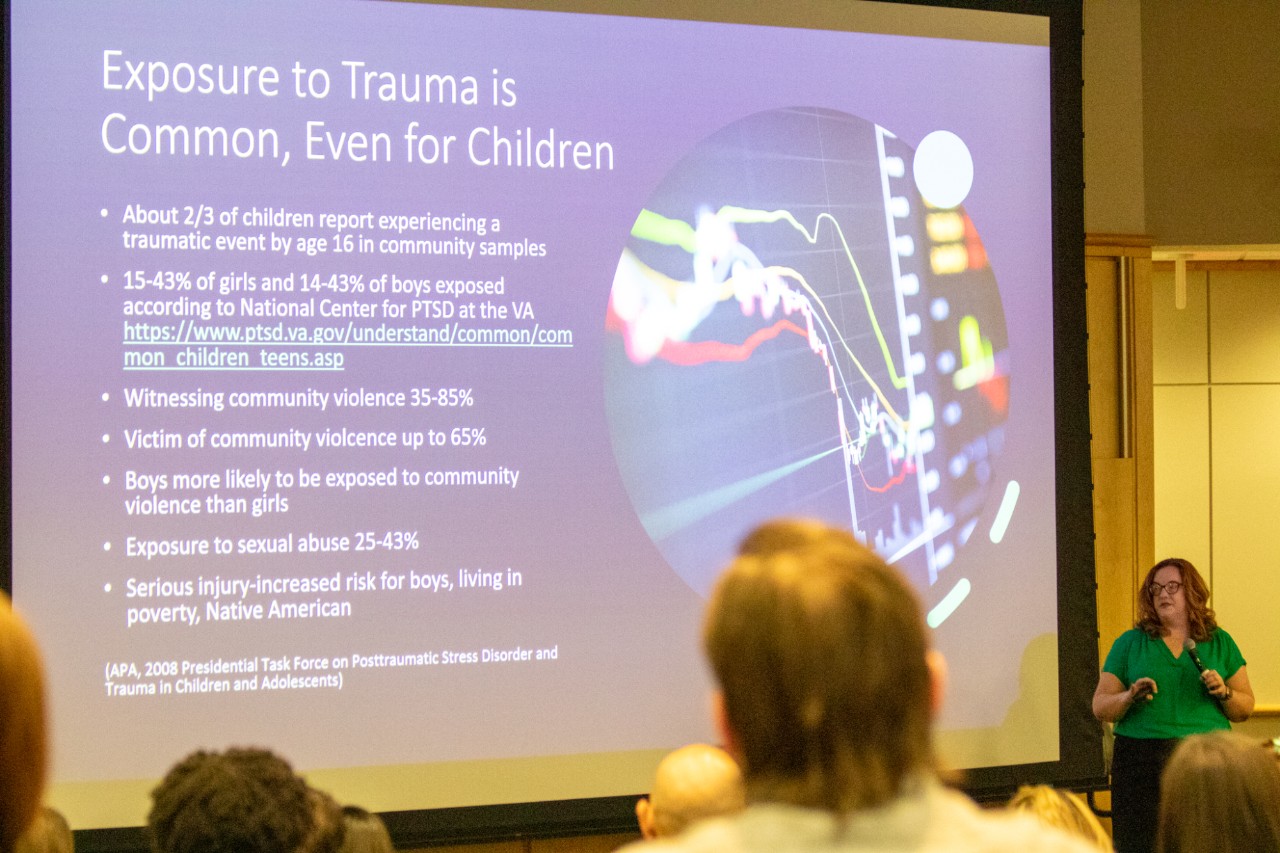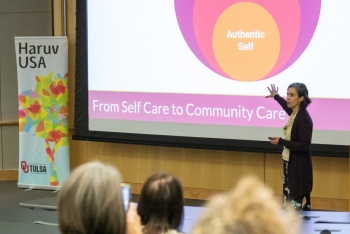“Making sure people have immediate access to food when they are experiencing food insufficiency is really important. But long-term solutions should also involve giving people the tools to work through the psychological burdens of toxic stress and childhood trauma that can contribute to chronic food insecurity,” says Marianna Wetherill, Ph.D., MPH, RDN/LD, associate professor at the Hudson College of Public Health and OU-TU School of Community Medicine and director of the Root Cause Food Equity Lab at OU-Tulsa.
Topics such as the relationship between adverse experiences and nourishment, including a deeper look at the effects of childhood trauma and the professional implications of a provider’s own relationship to food and self-care kept participants engaged and discussing. The second half of the day involved hands-on workshops to help providers flesh out their ideas and give them actionable steps to take back to their various organizations.
“It was important to us to provide these professionals with the space to reflect on the way they engage with the community and how they can make more patient-centered and community-centered initiatives to address root causes of food insecurity that may stem from trauma,” says Wetherill.
Dr. Miller-Cribbs explains it this way: “It can be odd to think about, ‘trauma-informed food services.’ But people who seek social services often have high rates of trauma, so any kind of service that can be trauma-informed is going to do a better job of serving families,” she says.



